Negotiations between the leaders of Turkey and Russia on Libya may open up new prospects for Ankara. While the military situation does not favor Turkey’s allies, things are looking much better on the diplomatic front.
On December 11, Russian President Vladimir Putin and Turkish President Recep Tayyip Erdogan held a telephone conversation in which they expressed concern about the clashes in the area of the Libyan capital Tripoli.
When Erdogan announced his intention to talk with Putin, he also claimed that he might send his military to Libya if the Libyan side requested it.
At the same time, the Turkish president said that he would like to discuss the situation in Libya with his Russian counterpart. According to Erdogan, he does not want Libya to become a “second Syria.”
Erdogan is unhappy that Russian military advisers are helping Libyan National Army Field Marshal Khalifa Haftar. While addressing the students at Bilkent University, President Erdogan mentioned Russian military involvement in Libyan affairs
“A Russian security company called Vagner has sent its security guards to the country. If Libya makes such a request from us, we can also send our personnel to Libya, especially after making the military security agreement ” the president declared.
On November 27, the Turkish president and the head of the Libyan Government of National Accord (GNA) Fayez Sarraj signed two memorandums in Ankara. One of them concerned the delimitation of maritime borders between two states and the other was dedicated to military cooperation.
The results of the negotiations provoked the indignation of Cairo, Athens and Nicosia. The governments of Greece, Greek Cyprus and Egypt emphasized that they consider the Libyan-Turkish accords illegal… the Greeks even expelled the Libyan ambassador from the country. Josep Borrel, the head of European diplomacy, also expressed his concern.
The Libyan front
The agreement between Ankara and Tripoli had previously been rejected by representatives of the Libyan National Army (LNA). Despite the fact that the LNA is the internationally recognized government of Libya, it does not control the entire country.
The Libyan national army of Field Marshal Khalifa Haftar holds the eastern part of the state and has (with varying degrees of success) made advances against Tripoli where the Sarraj government is located.
The demarcation lines in the Mediterranean between Ankara and Tripoli relate precisely to the area off the eastern coast of the country, which Sarraj does not even control.
On December 9, the fleet commander of the Libyan National Army, Farag el Mahdaw, according to Greek media reports, promised to sink all Turkish research vessels that approach the country’s coast. Earlier on Facebook, the Libyan military and a graduate of the Greek Naval Academy in Greece promised to thwart Turkey’s plans.
This is not the first anti-Turkish statement by the LNA commander. In May, he promised to attack any Turkish ships off the coast of Libya.
The Libyan National Army has accused Ankara of shipping the weapons being used in the conflict against the forces of Field Marshal Haftar. In July, Haftar’s forces reported the destruction of a Turkish-made UAV at the Tripoli Airport, and in November, the LNA reported that it had destroyed Turkish armored vehicles at the port of Misrata.
In turn, at the end of July, after six Turkish citizens were captured by Haftar’s forces, the Turkish Foreign Ministry threatened to designate parts of the LNA as “legitimate targets.” The captured Turks were later freed.
Turkey is already there
The Turkish military has been present in Libya for quite some time. During the military-political crisis in April 2019, Turkey provided military, political and economic assistance to the forces of the Government of National Accord in Tripoli.
This was when the bulk of the military equipment by the aviation, private contractors of transport companies and the ships of the Turkish Navy were delivered. Deliveries included firearms, light armored vehicles, and armored vehicles. In June, deliveries included more modern types of weapons, as well as unmanned aerial vehicles (Bayraktar TB 2) .
A group of Turkish military advisers were working actively in Libya at this time. These advisors directly supported the GNA’s forces in Operation Volcano of Rage. The de facto level of Turkish military presence in Libya is significantly high.
The main violators of the UN arms embargo on Libya includes Turkey, as well as the allies of Khalifa Haftar: the UAE, Jordan and Egypt.
In the long run, Turkey is interested in exploiting natural resources and exploration in the Libyan part of the Mediterranean. Turkey needs an ally that recognizes its rights to a large part of the Mediterranean basin. Do not forget that Turkey is one of Libya’s main economic partners, being one of the main exporters of building materials, consumer goods and food products.
Russian military presence on the ground is not as intense as Turkish presence, but Moscow has made clear that it also interested in the country. Despite providing support for Haftar, Moscow has preserved its contacts with the GNA, indicating that its position may be more nuanced than it appears. This is why the Turkish president aims to include Libya in its agenda of bilateral negotiations.
Is victory close?
The military situation in Libya does not favor the pro-Turkish government of Sarraj . Recently , the Special Representative of the UN Secretary General for Libya Ghassan Salame said he could not rule out that Haftar would attempt to take Tripoli again, and that this time, he might be successful. The Foreign Ministry of the government of eastern Libya promises to take the capital by the New Year.
Given the circumstances, military foreign aid may be essential for GNA troops. Among the primary government allies of Sarraj are Italy, Turkey and Qatar – however, it is only Turkey that is able to provide direct assistance.
From a military point of view, Turkey does not have the technical capabilities nor experience in conducting a large-scale military operations at such a distance from its own territory, but there are opportunities for the transfer of special operations forces who can use their experience in Syria to change the course of hostilities.
Another option is a larger involvement by the private military company Sadat, an organization christened by Turkey ‘s rivals as “Erdogan’s shadow army.” The militia has been participating in covert operations since 2012 and does not hide its presence in Libya.
Because the Libyan population is significantly less than the population of Syria, such interference could seriously alter the balance of power on the field of battle.
On the other hand, the prospect of direct Turkish military intervention could contribute to the consolidation of the opponents of Turkish expansion in the north-west and north-east of the country. This is the direct inverse of what supporters of a GNA are trying to achieve. Thus, the position of Sarraj’s army might be weakened from direct Turkish intervention or a military operation. This might also result in more unwanted casualities among Turkish troops.
Large-scale Turkish military intervention in Libya may require a significant amount of money and human resources and is unlikely to go unnoticed by the world community: the West will get yet another reason to blackmail Ankara with sanctions.
At the same time, the prospects for the victory of Turkey’s allies at this stage are extremely small. The maximum they can achieve is a return to the status quo reached in April 2019.
The capture of Tripoli would be a serious symbolic blow to the GNA , and could very well preempt its collapse. At the same time, controversy has been growing within Sarraj’s coalition following the recent Misrata militia attack on a GNA government building.
The way to stability
Given that the military situation does not favor Sarraj, the only way for Turkey to save face and its interests in Libya is to force a negotiation with the LNA; this needs to take place as soon as possible. Sarraj’s legitimacy in Libya has been put at stake by the recent coup attempt.
In order to accomplish this task, Ankara must negotiate with Russia. This is precisely what has motivated Erdogan, especially after Turkey’s experience working with Russia in Syria. While issues arose, Russia took Turkey’s interests into account. If Ankara moves in this direction in Libya, its interests will again be guaranteed. The other option is for Turkey to use its Syrian proxies to push Moscow in the right direction.

It would hardly be profitable for Turkey to spoil relations with Russia over of Libya. However, Russia would also not benefit from spoiling its relationship with Turkey.
All the other countries supporting the LNA – the United Arab Emirates, Saudi Arabia, Egypt and France, have tense relations with Turkey and will not make any guarantees: they will gladly knock the Turks out of the country. On the other hand, Putin and Erdogan have always been able to negotiate.
Russia is in a unique position among Haftar’s supporters, maintaining ties with Sarraj and denouncing terrorism; Ankara can easily take advantage of this. For example, Moscow supports holding a conference on the future of Libya in Berlin in the near future… Ankara could wedge itself into this process. It is not even necessary to abandon anti-Haftar rhetoric. In fact, it is enough to put the parties at the negotiating table and achieve guarantees of their interests with the Russians.
Theoretically, both countries could find a balance of interests in Libya and legitimize each other’s goals and interests. This could even result in full Turkish military control on the key city of Misrata, under the guise of counter-terrorist operation, or in creating a zone of de-escalation, similar to the one in Syrian Idlib.
Regarding Tripoli: the city will likely be sieged by Haftar, but Turkey can maintain influence by securing Ankara’s participation in the counter-terrorist operations in the city.
In return, Turkey should insist on gaining access to Libyan oil and gas resources in the Eastern Medditerranian. This could result in Ankara receiving an additional $5 billion in revenue. In the Eastern Mediterranean only Turkey can assure that a joint Cypriot-Greeck-Israeli-Egypt gas pipeline, which could serve as an alternative to Turk-Stream and other Russia project, will never be realized.
Mavi Vatan, açık deniz yelkencilerini bekliyor https://t.co/ky7lIEmUnZ pic.twitter.com/9UPL8O96Ig
— Ulusal Kanal (@ulusalkanal) December 15, 2019
Paradoxically, it is in Turkey’s interest to help increase Russian influence and presence in Libya, as this would weaken the influence of the UAE and Saudi Arabia and even Egypt. Moscow cherishes relations with Ankara much more than other Haftar’s backers.
In conclusion, if Turkey wants to demonstrate that it is the leader of the Islamic world, it cannot take a unilateral position. Turkish politics in Libya should demonstrate that Ankara is capable of taking into account the interests of different groups, proving it is a trustworthy negotiator. To accomplish this, it is important to set up direct communication channels with Haftar, and not rely solely on Moscow.


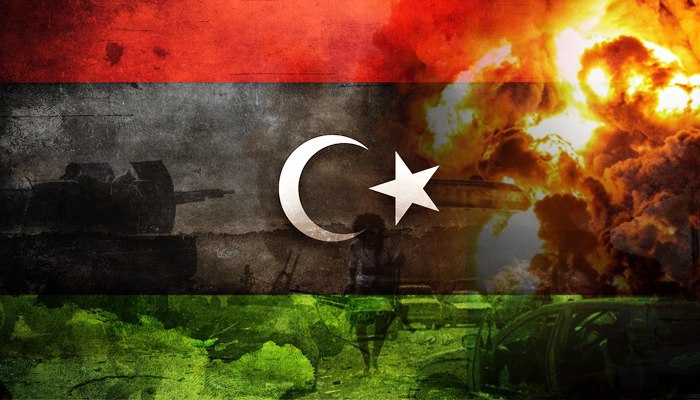

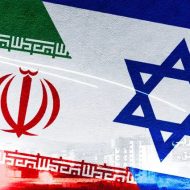
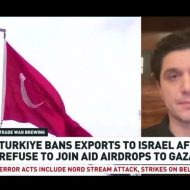
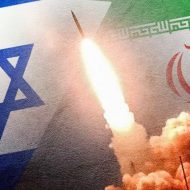
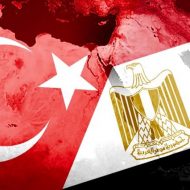
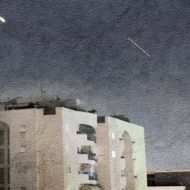
Leave a Reply